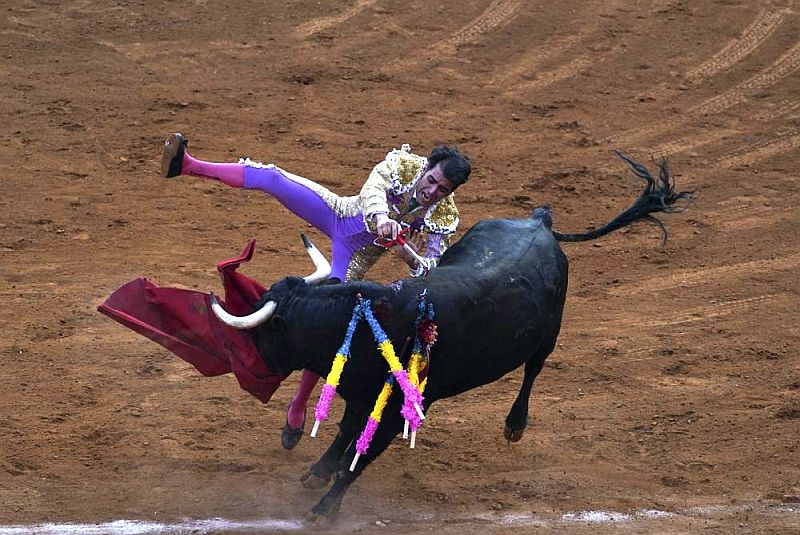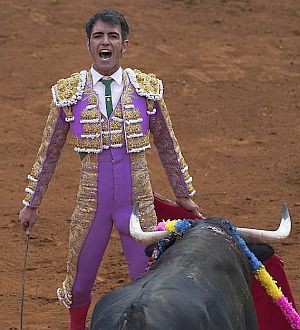
Mexico City – The heated debate over whether Mexico City should ban the centuries-old sport of bullfighting picked up steam over the weekend as this season’s bullfights came to an end.
Activists were pictured outside the city’s arena Sunday – as has become routine – holding signs with photos of mutilated bulls that read, ‘Torture is not Culture’ and burning bullfighting capes.
Last year, the assembly’s Animal Welfare Commission gave preliminary approval to a law banning public events ‘at which animals are subject to mistreatment and cruelty that result in their death.’ But the bill never made it to a vote before the full assembly.
Animal rights activist Alberto Luvianos said legislators may have been cowed by the potential lost income. “They (legislators) recognized that animals have rights, but the issue they are worried about is the income from bullfighting,” said Luvianos, who estimated the fights create about 3,000 jobs. The bullfighting association claims the real number is ten times that amount.
If the bill is approved, bullfight stagers could face fines of up to $231,000 – or 49 million Pesos.

Mexico City would be the sixth state to ban the traditional sport in the country after Sinaloa’s ban in January. Conquistadores brought the sport to the country 500 years ago.
However, cities in Spain, Bolivia and Ecuador have issued bans on the brutal sport, while it’s still largely allowed in France, Portugal, Mexico, Colombia, Venezuela and Peru.
Evangelina Estudillo is one of those opposing the ban. She has worked as street vendor outside the area for 20 years, and the income helped her raise nine children.
The prospect of a ban makes her uneasy.
‘The president would have to do something,’ Estudillo said. ‘Look how many families rely on this.’
Since 2013, five states in Mexico – Sinaloa, Sonora, Guerrero, Coahuila and Quintana Roo – have banned bull fights, and polls indicate substantial support for a ban.
According to Humane Society International, bullfighting still takes place in 27 states, with thousands of bulls being killed every year in the country.
A ban in Mexico City – currently the largest venue for the events – would be an international setback for bullfighting.
“I respect those who are against it, but I don’t agree,” said Paco Dominguez, who sells bullfighting merchandise and posters. “I see it as an art, a part of culture, and I make a living off of it.”
“This is a movement that comes here from outside of Mexico and tries to take away an ancestral tradition,” José Saborit Santa, director of the professional bullfighting association told The Washington Post last year.
Bulls used in the sport are usually raised for the fight and die in the ring.
“The prohibitionists seem not to understand that we aren’t fighting elephants or dolphins or cats. We are fighting animals who are raised for this, to show their abilities, to have a chance and, if not, to die nobly in the ring,” said Guillermo Leal, a correspondent for the newspaper Reforma.
Sources: Associated Press • Daily Mail





